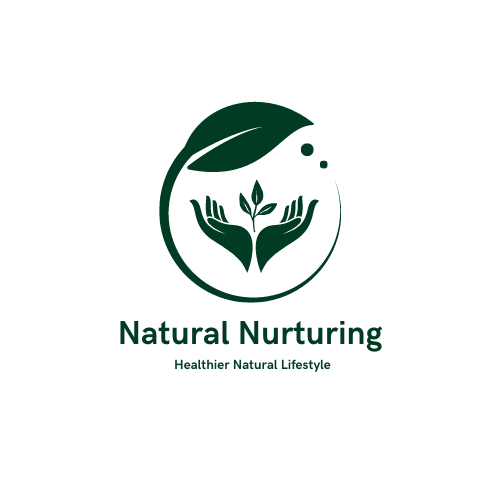
Eczema is a skin condition that affects millions of people worldwide. It causes the skin to become irritated, inflamed, and itchy, making daily life uncomfortable and painful for those who suffer from it.
While there is no cure for eczema, there are several ways to manage the symptoms and reduce flare-ups. Let's discuss some effective ways to help manage eczema symptoms and improve the quality of life for those who suffer from this condition.
5 Ways to Soothe Eczema
1. Use Mild Soaps and Detergents
Using harsh soaps or detergents can strip your skin of its natural oils, leading to dryness and irritation. Choose mild, fragrance-free soaps and detergents that are specifically designed for sensitive skin. Consider using natural laundry detergents such as Loni Bio laundry detergent or ECOS laundry detergent and Mrs. Meyer’s liquid laundry detergent.
Southern Natural Goat Milk Soap Bar is an excellent choice for those looking to manage eczema symptoms naturally. The soap contains natural ingredients such as goat milk, olive oil, and rosemary, which work together to moisturize and soothe dry, itchy skin.
Its gentle formula cleanses without stripping the skin of its natural oils, making it a great option for those with sensitive skin!
2. Moisturize RegularlyOne of the most important things you can do to manage eczema symptoms is to keep your skin moisturized. Dry skin can make eczema symptoms worse, so it's essential to use moisturizers that can help hydrate your skin and prevent irritation.
Look for fragrance-free, hypoallergenic creams or ointments, which can help lock in moisture and soothe your skin.
CHECK PRICE AND PURCHASE ON AMAZON
3. Consider Your Diet
While no specific diet has been proven to cure eczema, certain foods may trigger flare-ups or worsen your symptoms. For example, dairy products, eggs, soy, wheat, and nuts are common allergens that some people with eczema are sensitive to. Try eliminating these foods from your diet for a few weeks and see if it makes a difference in your symptoms.
Related Article: Itch No More - Allerviate Dry, Itchy Skin
4. Wear Soft Fabrics
Wearing tight-fitting clothes or fabrics irritating your skin, such as wool or synthetic materials, can worsen eczema. Opt for soft, breathable fabrics such as cotton or silk that won't rub against your skin or cause irritation.
5. Avoid Scratching
Although it can be tempting to scratch an itchy patch of skin, this can actually make eczema worse by causing further irritation and inflammation. Instead, try using a cold compress or taking an oatmeal bath to soothe the itchiness.
Dealing with eczema can be a frustrating and uncomfortable experience, but by following the tips outlined in this article, you can manage your symptoms and reduce the frequency and severity of flare-ups.
6 Types of Eczema
1. Atopic Dermatitis
Perhaps the most common type, atopic dermatitis is typically seen in children but can continue into adulthood. It often appears on the arms and behind the knees. Genetics, environmental factors, and a malfunctioning immune system are all potential contributors
2. Contact Dermatitis
Divided into irritant and allergic, this type occurs when the skin comes into contact with a substance that irritates it or to which an individual is allergic. The hands are especially vulnerable given their frequent exposure to various substances, but it may also occur on the face or other parts of the body.
3. Dyshidrotic Eczema
Blisters filled with fluid develop on the hands and feet. This is more common in women and is associated with seasonal allergies.
4. Nummular Eczema
Characterized by round spots of irritated skin, this type can be very itchy and often becomes dry and scaly. It's commonly seen on the arms and legs.
5. Seborrheic Dermatitis
This affects areas of the body where there are many oil-producing glands, like the upper back, nose, and scalp. It’s thought to be related to yeast and certain genetic factors.
6. Stasis Dermatitis
This form occurs when there’s a problem with blood flow, leading to leg swelling and eventually skin irritation. It's more common in the elderly.
Addressing eczema involves a careful balance. For instance, while moisture is crucial for managing eczema, over-moisturizing can make symptoms worse. Similarly, while it's important to avoid known irritants, excessively sanitizing hands (especially in the era of frequent hand sanitizing) can exacerbate the condition.
One key difficulty in managing eczema is pinpointing the exact triggers. While one person might react to a specific detergent, another might find no issues with it but struggle with a particular fabric or food item.
The Importance of Product Choice
For those with eczema, choosing body care products is more than a matter of preference. This becomes a necessity for comfort and health. Make sure to choose soap which contains natural ingredients such as goat milk and olive oil, which work together to moisturize and soothe dry, itchy skin
With a little extra care and attention to your skin, you can enjoy healthy, comfortable skin and avoid the discomfort that eczema can bring. Remember, if you find that your eczema symptoms are not improving or are getting worse, contact your doctor for additional support and guidance. With proper care and management, eczema doesn't have to control your life.
Affiliate Information
Natural Nurturing is an affiliate for some or all of the products on this page. When you click the link and purchase on Amazon, you support the mission duty and purpose of Natural Nurturing to bless and empower families by providing knowledge and resources that lead to a healthier more natural lifestyle.
Medical Disclaimer
Natural Nurturing Foundation maintains this website for information, education, and communication purposes. Nothing on this website should be construed as a promotion or solicitation for any products, or for the use of any product in a particular way that is not authorized by the laws and regulations of the country where the user is located. Thanks for your support!




